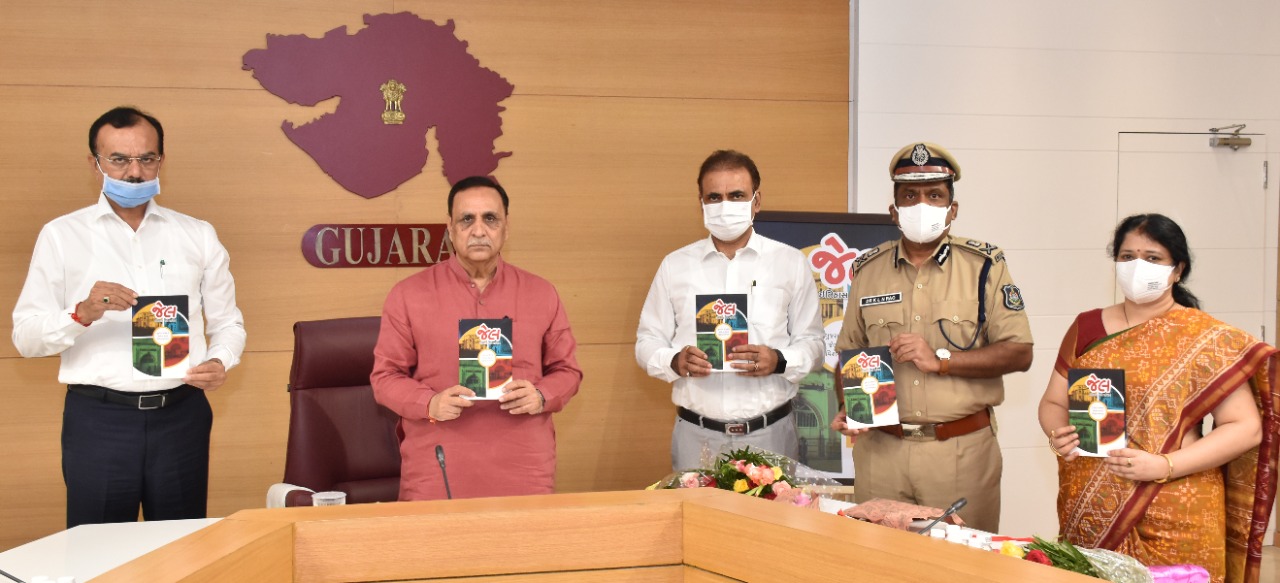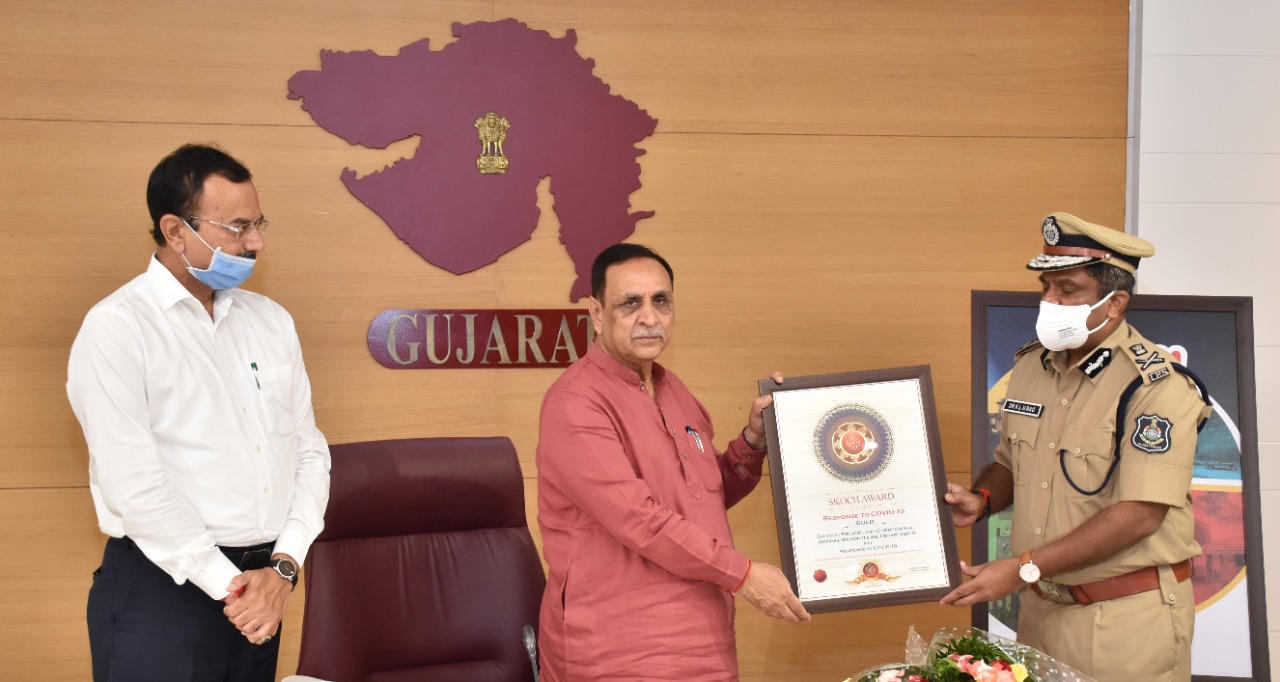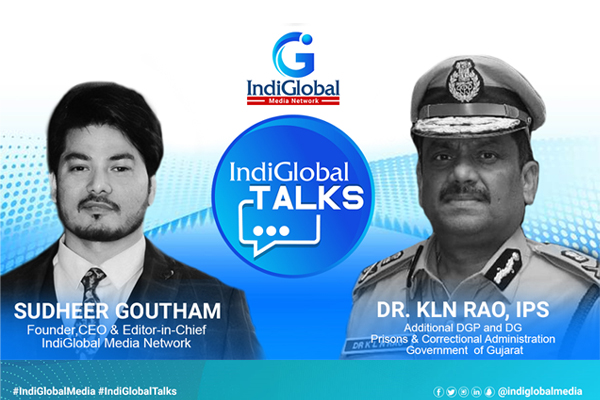
He is fondly known as Bhisma Pitamaha in the prison department, for his compassionate initiatives in raising living standards of prisoners. From being the first IPS Officer in the country to join services with Ph.D. from PUSA IARI at the young age of 24, he has also authored a book called ‘Jail- History, and Present’. Dr. K.L.N Rao, IPS, Additional Director General of Police and Director-General, Prisons & Correctional Administration, Govt of Gujarat, shares his journey in the IndiGlobal Talks with Sudheer Goutham, Founder & Editor-In-Chief, IndiGlobal Media Network.
Excerpts of the conversation:
Educational Journey
My journey started as any other normal child. I did my BSC with Botany, Zoology and Chemistry as subjects. I did my Masters from Hyderabad Central University with specialization in Biochemistry. I went on to pursue a PhD from Indian agriculture research institute on recycling of agro-waste by microorganisms. It’s a fermentation technology. It was the year 1992. In the same year I got into civil services – IPS, Gujarat cadre, and have been working in various capacities in different places of Gujarat.
Why Indian Police Services
Somewhere in the heart it was the passion to work for the society and contribute to the society. The Indian Police Services is a very good medium to do so. Hyderabad and Delhi are places from where several civil servants come from. Since I am from Hyderabad there was a peer group influence also on the career choice.
How IAS and IPS is different
Indian Administrative Services have a broader spectrum where officers get opportunity to deal with finance sports, agriculture, health, fisheries etc. Though IPS also has many spectrums like intelligence, special armed forces, prisons, vigilance etc., the canvas of IAS is comparatively broader.
 What motivated to write the book “Jail”
What motivated to write the book “Jail”
The book titled Jail was launched on 31 st August by Gujarat CM, Mr. Vijay Rupani. I have worked for 30 years in policing service. In the prison department I worked for close to 2 years. It is a different world and challenges and experiences are different from other responsibilities that I had handled so far in postings in both rural and urban India. Working in prisons is totally unique. Specially, when I visited jail like the Sabarmati Jail where we had iconic figures like M K Gandhi, Sardar Vallabh Bhai Patel, Bal Gangadhar Tilak, Kasturba Gandhi and other such people for the cause of freedom, it had an impact on my mind. Looking at inmates in the cells one would realize how totally different the world is inside the jail. It made me realize how precious the gift of freedom is and if we take away freedom from a person how much is missing in his /her life. All these led me to write a book based on jail life. Book is published in Gujarati. The English version is coming out shortly. Prisons are prohibited areas and since people do not go there, they have misconceptions about it. My aim was to remove those misconceptions through my book.
Vast difference between pre-independence and post-independence jails
Pre-independence prisons were like temples of freedom struggle. Inmates looked upon them as temples of democracy. They were tortured by the British. They were given inhuman treatments like no access to sunlight at all and other such inhuman experiences. In the post-independence era, the entire prison department has changed radically. Somehow, we have not conveyed to common people that post-independence jails are not that harsh as we are treating our own people. Jails have lost connection with society. My effort with my book has been to build connections with society and remove misconceptions. Torture, no food, punishing with hunters etc. are no more part of post-independence jails. Society needs to be provided a window of it. It should know that prisoners lead normal lives within the walls of the law. They are allowed to do farming, animal husbandry, carpentry, bakery, work in jail-based industry etc. The female wing has beauty parlour training, stitching, embroidery etc. So, all these are skill development activities so that once the prisoners are out of jail they get integrated in society and earn a livelihood. My effort has been to tell about all this in the simplest form and language.
 How background of science and a degree of PhD helps as an IPS Officer
How background of science and a degree of PhD helps as an IPS Officer
No knowledge goes to waste. Whatever knowledge one acquires helps to understand concepts later on in life. My degree in science helps me in many investigations like the ones that involve forensic sciences. The research on my PhD from Indian agriculture research institute on recycling of agro-waste by microorganisms helped me to provide guidance to jail inmates on how to utilize waste to create energy and how to do organic farming. So, the concepts learned as a student of science have certainly been helpful as an IPS officer.
Watch on YouTube: https://www.youtube.com/watch?v=jU2PI2OP-tI
 Prisons in India in comparison to other countries
Prisons in India in comparison to other countries
In the entire criminal justice system, what we have in our country is no less than other prisons in the world. Our prisons are one of the best in the world with a track record of good human rights and rights to the inmates. We have been a signatory in international committees and conferences. In terms of facilities given to inmates, we are at par with the world.
In western countries, in places like California there are private prison facilities that we don’t have but private prisons there too are probably closing down. In many countries conjugal visits for jail inmates are allowed. This is something that we do not provide.
There are certain areas that we need to work upon like overcrowded jails, not all but some of them are overcrowded. Improved infrastructure and improved counselling initiatives for suicide prevention should also be worked upon.
 How technology is a boon for policing
How technology is a boon for policing
Technology is a boon in policing and we use all algorithms for it. We make use of artificial intelligence for things like face recognition, we use telecommunication, we use drone technology to monitor movement in prohibited areas, there are CCTV coverage in every prison, there is geo-fencing of jails where we keep high profile prisoners so that an alert gets triggered if at all there is use of certain devices. So, technology has helped in a big way. Also, facilities like video conferencing in the context of the requirement of presenting undertrials in the court every 14 days is a boon. Video conferencing saves from a lot of drudgery. Fuel cost of the government is saved. Manpower is saved and there are lesser chances of prisoners to run away during the process of court visits. Raising alerts in the police department across districts and states becomes easy with technology. Integration of technology in prison administration and police administration as a whole has had a major impact on the overall efficiency.
Watch on YouTube: https://www.youtube.com/watch?v=jU2PI2OP-tI
What touches heart as an IPS Officer
I have been serving as an IPS officer for close to 30 years. My experience of working in the prisons has been most amazing as the inmates look up to us for everything. Seeing a fellow human being there in confined places, touches the heart. My effort has always been to give every individual near-normal life in the prison within the framework of law. We ensure good food, hygiene etc. so that they lead a good life.
 Covid and life in prisons
Covid and life in prisons
Covid has been difficult globally and more in confined places like the prisons. By god’s grace we were able to tackle the challenges head-on. We were able to contain these places and develop a standard operating procedure. I am happy to share that during the initial days when things were not clear and there was an atmosphere of uncertainty of what kind of testing is required, N-95 masks to be used only etc., our industry department in jail produced 5-6 lakhs masks and PPE kits in April 2020, which was the initial phase of Covid. Our chemical department under the industry department produced sanitizers. We had been self-dependent right from masks, PPE kits, sanitizers to hospital wards and quarantine facilities.
The Honourable Supreme court came to our help. During the first and second wave it ordered prisoners of lesser offences; of less than 7 years, to go on long interim bail of 90 days. There have been interesting anecdotes like prisoners are being taken to their home with police protection, transport, food kits and medicinal requirements. There was a unique experience of dealing so humanly in the circumstances of the pandemic. My experience in Covid times in jail has provided a lot of unique experiences.
There is a lesser-known fact that even the jail inmates have contributed to the fight against Covid. In fact, the Gujarat Prisons has been awarded the SKOCH award for dealing with Covid so well. So, we have tackled challenges well. We have put fatalities to bare minimum.
Message for aspirants of Indian Police Services
Follow your heart. Follow your dreams and the dreams will come true. Have compassion towards people at large and you will be successful.
Watch on YouTube: https://www.youtube.com/watch?v=jU2PI2OP-tI

